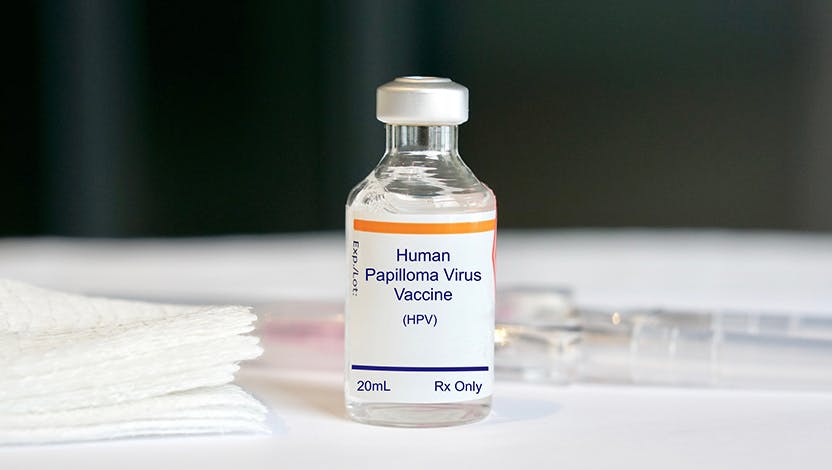Public perception of scientific uncertainty is linked to HPV vaccine policy support

The human papillomavirus (HPV), the most common sexually transmitted infection in the United States and a known cause of cancer, can be prevented through vaccination. Public perceptions about how the scientific evidence supporting the HPV vaccine is portrayed in society and the media may influence how willing individuals are to support public health measures that would increase HPV vaccination, cervical and head and neck cancers. Yet across the United States, vaccination rates remain relatively low despite high incidence of HPV infections.
The vaccine has not achieved widespread acceptance in spite of its potential benefits to public health in preventing cancer perhaps, in part, because it has become “politicized”.
Previous research has demonstrated that explicit political disagreement over the vaccine may lead to decreased support for HPV vaccine requirements, but it was not yet known whether public’s perceptions of politicization surrounding the HPV vaccine is associated with their support for policies intended to increase vaccination behavior.
To conduct their study, the researchers fielded a national survey of U.S. adults between the ages of 18 and 59 and, among those who had heard of the HPV vaccine, asked them about how they viewed the vaccine.
Respondents were asked questions related to the politicization of the HPV vaccine as measured through three dimensions: perceptions of whether society and media have portrayed the HPV vaccine as controversial, perceptions of whether scientific evidence supporting the HPV vaccine was certain or uncertain, and perceptions of the frequency with which the HPV vaccine was included in political discussions. They were also asked how strongly they support proposed HPV vaccination requirements, as well as their political ideology and their prior personal experience with the vaccine.
The vaccine has not achieved widespread acceptance in spite of its potential benefits to public health in preventing cancer perhaps, in part, because it has become “politicized”.
The study found that of the two HPV vaccination policies that might be implemented by states and/or health care organizations, 59% of adults expressed support for policies requiring pediatricians to offer the HPV vaccine to families with children 11 to 18 years of age, while only 32% of respondents supported HPV vaccine school requirements. Furthermore, of the individuals who perceived that the science supporting the HPV vaccine was “fairly certain,” 55% supported vaccination requirements for children in middle school, as opposed to the 16% who supported such requirements among those who perceived the science as “not clear.”
Similarly, 82% of individuals supported vaccination policies requiring pediatricians to offer the HPV vaccine when they considered the science “fairly certain,” in contrast to 44% support among those who perceived the science as “very uncertain” surrounding the vaccine. Adjusting for other characteristics of study participants, the researchers still found a strong relationship between perceptions of scientific uncertainty and support for either HPV vaccine policy, with perceptions that the science is less clear being related to lower support for HPV vaccine policies.
Understanding the consequences of communicating scientific uncertainty versus scientific consensus is an important direction for future research, the authors wrote.
“I think the greatest implication of this finding is that the certainty of a body of evidence, and how that gets communicated to the public, might influence public support for important policy interventions,” said Saulsberry.
The study, “Perceptions of Politicization and HPV Vaccine Policy Support,” was published in Vaccine on July 8, 2019. Additional authors include Erika Franklin Fowler, PhD, from Wesleyan University, and Rebekah Nagler, PhD, and Sarah Gollust, PhD, both from the University of Minnesota.
This study was supported, in part, by the American Cancer Society, RSG-14-166-01-CPPB (PI: Sarah Gollust).
